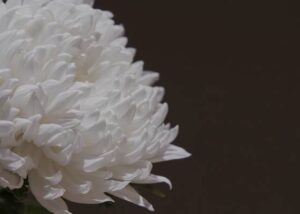Quran
Hadith
Islamic Text
No, the Prophet ﷺ did not pray Janazah (funeral prayer) over a Christian. This question seems to be referring to the king of Abyssinia (Najashi). This person had become Muslim but kept it secret from his people.
مَا كَانَ لِلنَّبِيِّ وَالَّذِينَ آمَنُوا أَنْ يَسْتَغْفِرُوا لِلْمُشْرِكِينَ وَلَوْ كَانُوا أُولِي قُرْبَى
It is not (appropriate) for the Prophet nor those who believe to seek forgiveness for idolaters, even if they are close relatives. (Surah al-Towbah, verse 113).
From the verse above and numerous other proofs we find that it is not permitted for a Muslim to make Dua (supplicate) for a non-Muslim (Kafir) after death. If it is not permitted to supplicate then it is certainly not permitted to pray the funeral prayer (Janazah) for a Kafir.
The Prophet ﷺ would never contradict a direct prohibition from the Holy Quran. Therefore, suggesting that the Prophet ﷺ prayed over a Christian is a shocking accusation against the holy Prophet ﷺ.
As for the Prophet ﷺ praying Janazah over al-Najashi, this is authentically narrated. However, he was a Muslim. He left Christianity and embraced Islam. It is unacceptable to accuse a Muslim of being Kafir. So people must desist from referring to al-Najashi as Christian.
عَنْ جَابِرٍ رَضِيَ اللَّهُ عَنْهُ، قَالَ النَّبِيُّ صَلَّى اللهُ عَلَيْهِ وَسَلَّمَ حِينَ مَاتَ النَّجَاشِيُّ: مَاتَ اليَوْمَ رَجُلٌ صَالِحٌ، فَقُومُوا فَصَلُّوا عَلَى أَخِيكُمْ أَصْحَمَةَ
(Sayidin) Jabir (May Allah Most High be pleased with him) narrated, when the Najashi died, the Prophet ﷺ said, ‘A pious man has died today. So stand and pray over your brother Ashamah.’ (Sahih al-Bukhari, 3877).
In the Hadith above, we find the Prophet ﷺ encouraging the Sahabah to pray over al-Najashi. We also find clear proof that he was a Muslim. Firstly, the Prophet ﷺ called him a pious man. The Prophet ﷺ would not refer to a Kafir as a pious man.
Secondly, the Prophet ﷺ referred to him as ‘your brother.’ The norm is to refer to fellow Muslims as brothers and sisters. Although it is correct that non-Muslims are our brothers and sisters in humanity, our fellow Muslims are our brothers and sisters in religion too. Therefore, the term is most often used for fellow Muslims.
فَقَالَ: وَيْحَكَ يَا عَمْرُو، أَطِعْنِي وَاتَّبِعْهُ، فَإِنَّهُ وَاللهِ لَعَلَى الْحَقِّ، وَلَيَظْهَرَنَّ عَلَى مَنْ خَالَفَهُ كَمَا ظَهَرَ مُوسَى عَلَى فِرْعَوْنَ وَجُنُودِهِ، قَالَ: قُلْتُ: فَبَايِعْنِي لَهُ عَلَى الْإِسْلَامِ، قَالَ: نَعَمْ، فَبَسَطَ يَدَهُ وَبَايَعْتُهُ عَلَى الْإِسْلَامِ، ثُمَّ خَرَجْتُ إِلَى أَصْحَابِي وَقَدْ حَالَ رَأْيِي عَمَّا كَانَ عَلَيْهِ، وَكَتَمْتُ أَصْحَابِي إِسْلَامِي
So, he (al-Najashi) said, woe be upon you O Amr, obey me and follow him (the Prophet ﷺ). For indeed he is upon the truth. He will certainly be victorious against those who oppose him just like Musa (peace be upon him) was victorious over Firown and his forces. I (Amr) said, take my pledge upon Islam on his behalf. He (Najashi) said yes. Then he extended his hand and I pledged my Islam. Then I went back to my companions and my opinion had changed from what it was, and I kept my Islam a secret from my companions. (Musnad Ahmad 17777, Hasan).
In the narration above we have further proof for the fact that al-Najashi was Muslim. Not only was he Muslim himself, he encouraged Sayidina Amr ibn al-Aas to become Muslim and pledge allegiance to the Prophet ﷺ through him. Thus, it is abundantly clear that the Prophet ﷺ prayed the Janazah of a Muslim not a Christian.
ولأنه كان بين قومٍ كُفَّارٍ يكتم إيمانه فلم يُصَلَّ عليه. (شَرْحُ صَحِيح مُسْلِمِ)
He (al-Najashi) was amongst disbelievers (Kufar), hiding his Iman. Therefore, he was not prayed upon. (Imam Qadi Iyad, Sharh Sahih Muslim)
النجاشي رجل مسلم قد آمن برسول الله صلى الله عليه وسلم وصدقه على نبوته إلا أنه كان يكتم إيمانه، والمسلم إذا مات وجب على المسلمين أن يصلوا عليه إلاّ أنه كان بين ظهراني أهل الكفر ولم يكن بحضرته من يقوم بحقه في الصلاة عليه فلزم رسول الله صلى الله عليه وسلم أن يفعل ذلك إذ هو نبيه ووليه وأحق الناس به فهذا والله أعلم هو السبب الذي دعاه إلى الصلاة عليه بظهر الغيب. (معالم السنن)
Najashi was a Muslim man. Indeed he had believed in the messenger of Allah ﷺ and accepted his prophethood. However, he used to conceal his faith (Iman). When a Muslim dies it is obligatory for the Muslims to pray over him. Since he was surrounded by people of Kufr (disbelievers), there was no one present to fulfil his right regarding the (funeral) prayer . Therefore it became necessary for the Prophet ﷺ to do so. As he ﷺ was his Prophet, his ally (Wali) and the closest of people to him. And this is the reason that caused the prayer to be established in his absence. (Imam Abu Sulaiman al-Khattabi, Ma’alim al-Sunan).
وَقَالَ بَعْضُ الْعُلَمَاءِ إِنَّمَا صَلَّى عَلَيْهِ لِأَنَّهُ كَانَ يَكْتُمُ إِيمَانَهُ مِنْ قَوْمِهِ فَلَمْ يَكُنْ عِنْدَهُ يَوْمَ مَاتَ مَنْ يُصَلِّي عَلَيْهِ فَلِهَذَا صَلَّى عَلَيْهِ صَلَّى اللَّهُ عَلَيْهِ وَسَلَّمَ. (البداية والنهاية)
Some scholars said, the Prophet ﷺ only prayed upon him (al-Najashi) because he used to conceal his faith from his people. Therefore, no one was available to pray upon him the day he died. Due to this he ﷺ prayed upon him. (Imam Ibn Katheer, al-Bidayah wa al-Nihaayah).
And Allah Most High Knows Best
-Answered by Shaykh Noorud-deen Rashid (12.09.2022)
See also:
Is it permitted to make Dua for a Kafir (non-Muslim) after death?
See also (video):






